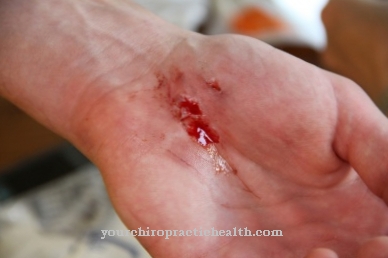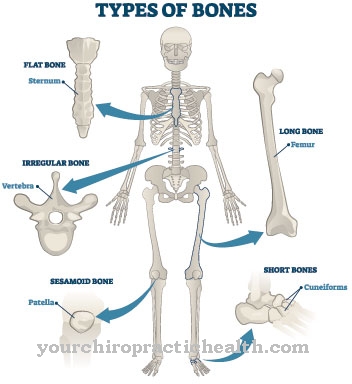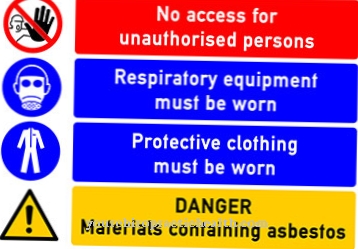The Pick disease, also Pick's disease called, is a form of dementia that is associated with changes in personality structure. Since there is no cure, therapy focuses on alleviating symptoms.
What is Pick's Disease?

© quickshooting - stock.adobe.com
As Pick disease is a disease that is similar to dementia. It takes its name from the neurologist Arnold Pick, who discovered and researched the disease in 1900. The neurologist found out, among other things, how the disease expresses itself and how its course is. The therapy methods have only been developed in the last few decades and only promise a complete cure in rare cases.
Pick's disease is characterized by a change in personality. This often leads to problems in the social environment that also cause psychological problems for those affected.
causes
Pick's disease occurs at a ratio of 3.4 / 100,000. Which factors are responsible for their occurrence has not yet been finally clarified. However, it is believed that the MAPT gene, which encodes the tau protein, is a trigger. In addition, an accumulation of the TDP-43 protein can be observed in those affected.
What is certain is that the disease occurs more often within families. What exactly triggers the gene defects mentioned, however, has not been clarified, which makes targeted treatment more difficult. If the corresponding gene changes are present, Pick's disease breaks out in almost all cases. This usually happens between the ages of 50 and 60.
Symptoms, Signs & Ailments
In addition, those affected forget learned rules of behavior and behave accordingly conspicuously among people.
In detail, those affected suffer from apathy and listlessness. They neglect their personal hygiene, neglect and behave uninhibited in society. Often it comes to so-called joke addiction and sometimes also to sexual suggestions. Those affected lose their ethical values, become criminal and generally behave like instincts. Often the apathy alternates with a strong euphoria.
As the disease progresses, physical complaints also increasingly occur. Those affected lose their ability to speak, suffer from disorientation and later from classic dementia with muscle stiffness. This leads to the need for care and the psychological symptoms intensify.
Diagnosis & course of disease
Pick's disease can be diagnosed by a doctor if the person concerned first suspects it. Due to the rarity of Pick's disease, it is imperative to take a comprehensive medical history. Possible cases of dementia in the family are determined as well as the exact symptoms. Close relatives or friends of those affected are usually brought in for this.
The physical examination essentially consists of nuclear medicine diagnostics, during which the glucose metabolism of the brain is controlled. If this is reduced, this indicates Pick's disease. Decreased blood flow can also be an indication, but this must be substantiated by further investigations. These are exclusion diagnoses that examine the person affected for other forms of dementia in order to rule them out and ultimately diagnose Pick's disease.
A clear diagnosis is only possible after the death of the person concerned. Parts of the temporal lobe are examined under the microscope. The so-called “Pick bodies”, which are located in the nerve cells of the temporal brain in Pick's disease, are particularly clear.
Regardless of whether and when the disease is diagnosed, it proceeds slowly and with no chance of a cure. If there are only slight memory impairments at the beginning, serious complaints gradually arise, including muscle stiffening and ultimately death.
Complications
As a result of Pick's disease, people usually suffer from various personality changes. This mainly leads to psychological and social complaints. Especially with children or adolescents, this can lead to exclusion, bullying or even teasing. Furthermore, the illness leads to non-compliance with certain rules of conduct or rules of behavior, so that the mental development of the person affected is clearly disturbed due to the illness.
Loss of drive or anxiety can also occur and have a negative effect on everyday life. Pick's disease can also lead to disorientation and significantly reduce the patient's coordination and concentration. Those affected are usually dependent on the help of other people in their everyday life and can no longer cope with it alone.
Pick's disease does not affect the patient's life expectancy. A causal treatment of Pick's disease is not possible, so that the individual complaints can be alleviated with the help of various therapies. There are also no particular complications. Medicines can possibly also be used, but these can have side effects.
Treatment & Therapy

From there on, various therapies that are intended to train and maintain the ability to think and learn are used. In addition to the therapy methods mentioned, drugs are usually also administered. However, since these sometimes have strong side effects, attempts are now being made to stabilize those affected in their self-control and their being only by using alternative therapy methods.
You can find your medication here
➔ Medicines against memory disorders and forgetfulnessOutlook & forecast
Pick's disease usually cannot be completely cured. For this reason, those affected are mostly dependent on lifelong therapy to alleviate and limit the symptoms. Without treatment, the symptoms can also worsen significantly and thus significantly limit the life of the person affected. The earlier a doctor is contacted and treatment is initiated, the better the further course of this disease is usually. Those affected by Pick's disease are often dependent on help and support from their own families in their everyday lives. This can make everyday life much easier. With the help of various therapies, the symptoms can also be limited.
A direct prevention of Pick's disease is not possible because it is a hereditary disease. Therefore, the person affected or the relatives of the patient can carry out genetic testing and counseling in order to prevent the disease from recurring in the children. The disease can only be delayed, but not completely cured. The further course is also highly dependent on the extent of the disease, so that a general prediction cannot be made here. Pick's disease may also reduce the life expectancy of those affected.
prevention
Since Pick's disease is anchored in the genes, it can only be prevented to a limited extent. So it is possible to alleviate the symptoms through memory training and to act preventively through mental activity.
In addition, a healthy lifestyle with a balanced diet and enough exercise is important in order to stay physically and mentally fit longer. If Pick's disease then breaks out, the individual stages can possibly be delayed, which ultimately improves the quality of life. Finally, a social environment is extremely important. In the event of an illness, they should be informed about the symptoms and changes in behavior so that they can act as a support as the disease progresses.
Pick's disease cannot generally be avoided. If the attachments are present, the disease breaks out sooner or later. The extent to which this happens, however, depends on how quickly the disease is recognized and what measures are taken before and during the disease.
Aftercare
In most cases, patients with Pick's disease have few or very limited follow-up measures available because the disease itself cannot be properly cured. Therefore, a doctor should be contacted very early to avoid further complications or other complaints. Most of those affected are dependent on intensive therapy and support from their own families and relatives.
This may also prevent depression or other psychological upsets. In addition, it is often very important to take various medications in order to limit the symptoms. With this intake, the person concerned should always observe the regular intake and the correct dosage.
If Pick's disease is hereditary, genetic testing and counseling is recommended if you want to have children in order to prevent the disease from recurring. It cannot generally be predicted whether Pick's disease will lead to a reduced life expectancy for those affected.
You can do that yourself
Pick's disease is a serious condition that can only be counteracted to a very limited extent. Sufferers can use various therapy methods such as exercise or music to delay the progression of the disease.
If memory disorders are noticed, a diary should be started. This consolidates the memories and can be an important support for the sick. Music and art help to stay positive and to strengthen the memory. Psychological complaints can also be counteracted with exercise, a balanced diet and avoidance of stress. In the later stages of the disease, the affected person needs the support of friends and family. A social safety net, but also financial security, is particularly important if you are in need of care.
People who have Pick's disease should speak to their doctor early on about the necessary measures. The doctor can also provide information about alternative therapy methods, for example methods from Chinese medicine or naturopathy. A visit to a specialist center for neurological diseases helps many sufferers to better understand and accept the disease.



.jpg)

.jpg)







.jpg)

.jpg)
.jpg)











.jpg)